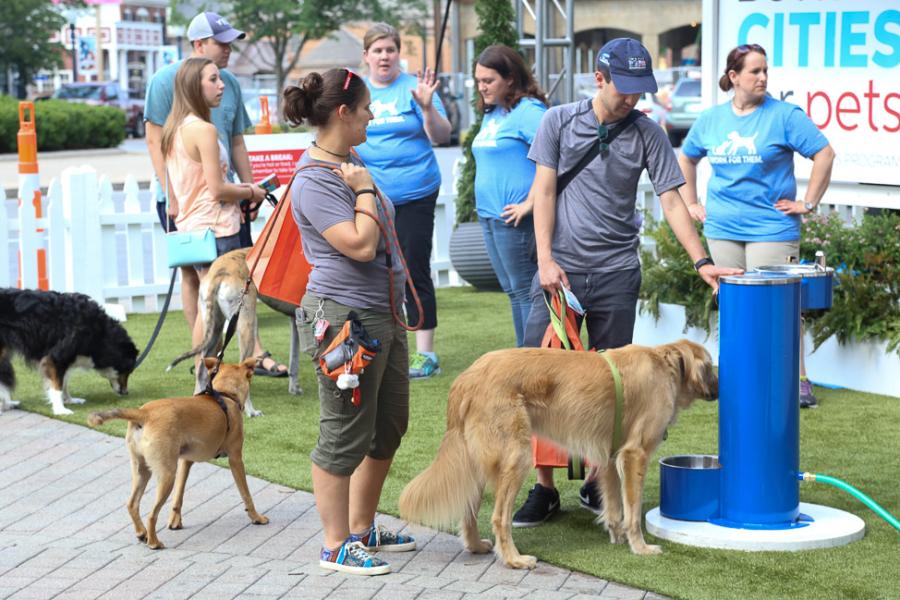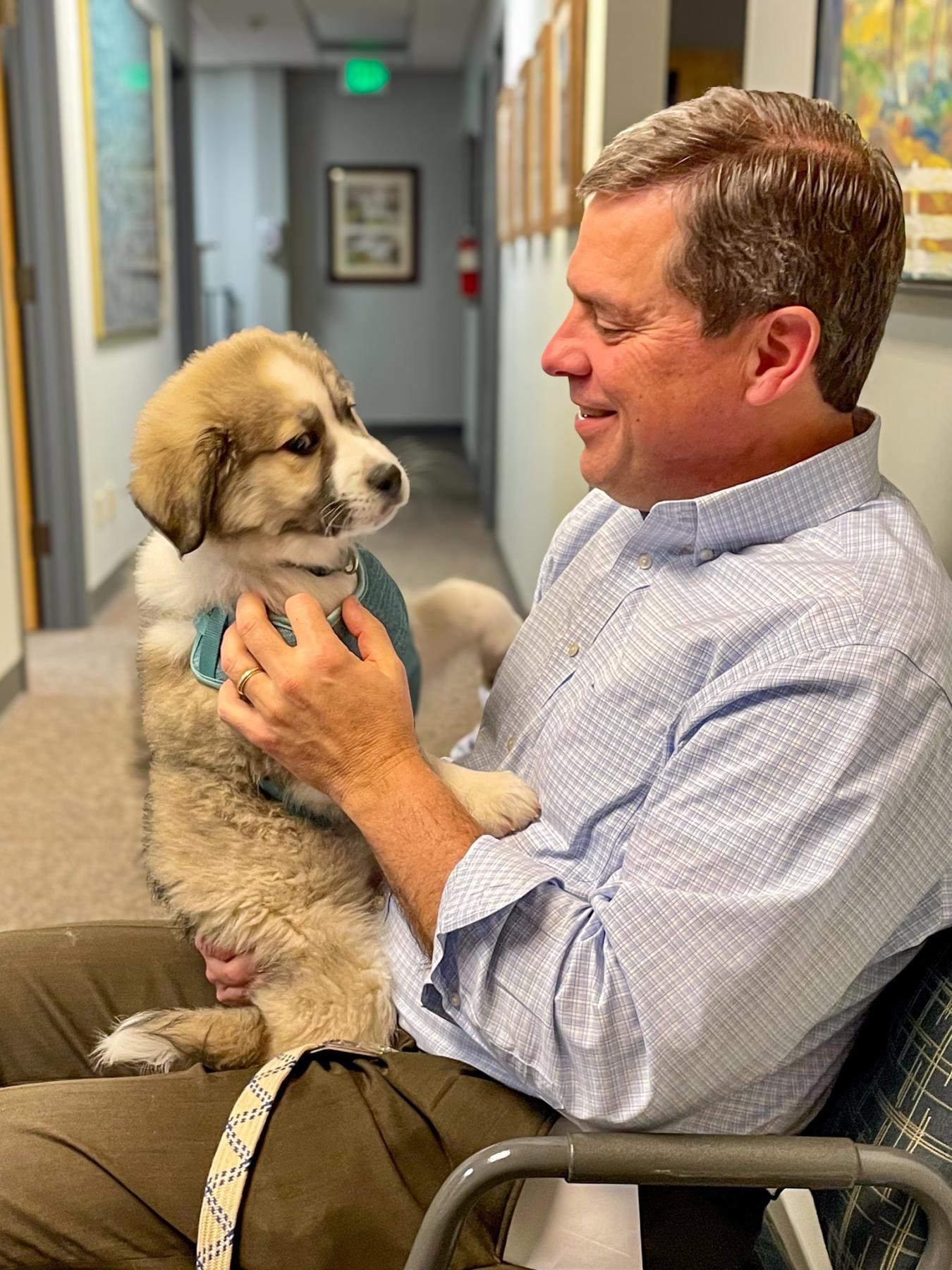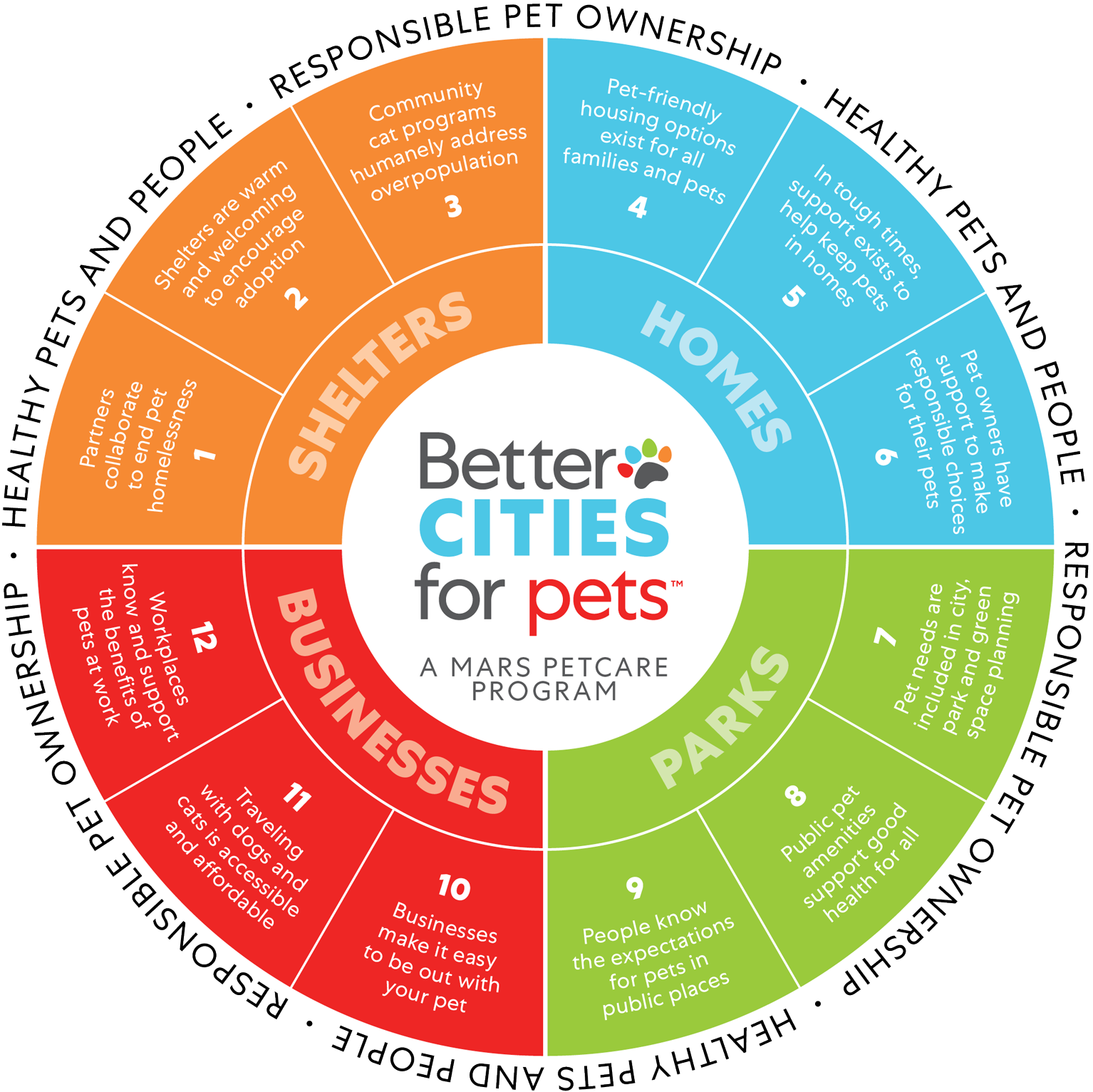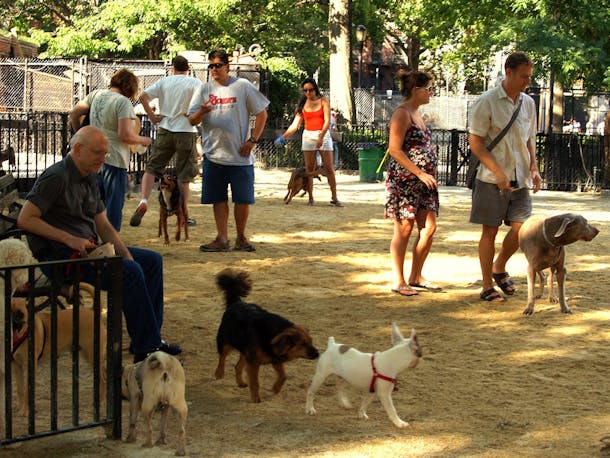Tennessee-based pet care company seeks to make Better Cities for Pets

By KATE COIL
TT&C Assistant Editor
With pet ownership spiking in the past 30 years, finding a community that has opportunities for furry friends is becoming a priority for many Americans.

Ben Anders, external affairs manager with Mars PetCare, said the company launched the Better Cities for Pets Initiative to help cities better connect and market their pet-friendliness with opportunities for local businesses, animal shelters, housing, and parks and recreation.
“Mars is a manufacturing company, and people know us from our pet food and our confectionery products,” he said. “There is purpose from behind the product, and we want to help the communities we are in. The idea behind Better Cities for Pets is that we really do care about the well-being of pets, pet-owners, and people. We wanted to be a leader and a resource in that space to help communities achieve more pet-friendly amenities and spaces. This is more about our purpose work and making a better world for pets.”
Cities that have earned the designation in Tennessee include Franklin – where Mars Petcare is headquartered – as well as Bartlett, Brentwood, Germantown, Hendersonville, Memphis, and Nashville. There are more than 150 cities in the national network. Anders said the program fits small, medium, and large cities, and most cities just haven’t connected what resources they already have.
“A lot of the times, we find that cities sign up to become certified and they already have all of the credentials because they have the access to shelters, access to green space and pet-friendly businesses in their community,” Anders said. “Cities have this resource available, and it’s not that difficult to be certified through this program. It is a resource anyone can tap into. It’s completely free, and once you participate in the program, you are eligible to apply for grants to help pet-friendly projects in your community. I want every city across the United States to be a part of this program.”
According to the Pew Research Center, 62% of Americans have at least one pet at home and 35% have more than one. One in five Americans brought a new pet into the family during the pandemic with 85% of those pets remaining in the family after Americans began returning to work. Furthermore, in a survey conducted by Mars Petcare, 92% of pet owners reported that having a pet improved both their mental and physical health over the past three years.

“We want communities to really focus in on those pet-friendly amenities because people are expecting them, especially younger people who are moving into cities,” Anders said. “They are really asking those questions about if where they can take their dog on a walk, are there greenspaces, and dog parks. Residents are really demanding these things. Our program recommends ways and resources for cities to tap into those demographics they are trying to attract. We have toolkits on our website that include model ordinances, signage for responsible pet ownership, and residential education.”
According to Forbes, Millennials make up the largest percentage of current pet owners (33%), followed by Gen X (25%) and Baby Boomers (24%). However, members of Gen Z are the most likely to have more than one pet.
“Everyone can be a pet parent,” Anders said. “We see pet ownership as important across the board for different reasons and with different expectations. It’s amazing how people really view and treat pets like family from what they feed them to how they exercise them and give them healthcare.”
Having pet-friendly spaces can also help foster a sense of community, Anders said.
“The pandemic really showed us that we need a place to gather, that gathering is important for health, community, and connection,” he said. “We see the power of pets in bringing people together, whether that is in dog parks, pet-friendly businesses, and offices that are pet-friendly. Particularly pet-friendly businesses have a real opportunity to go after that demographic and consumer base. It helps businesses to evolve. Communities can take a look at ordinances and laws to help businesses that want to be more pet-friendly. Having those resources within the community makes sure everything is done by the book and is having a safe environment for customers.”

One of the partner organizations of Better Cities for Pets is the U.S. Conference of Mayors. Anders said that the network Better Cities for Pets has created through this and other partnerships also helps cities share knowledge and collaborate on new and innovative projects.
“Once you are part of the program, we try to have consistent touch points within the network via social media, email, updates and big happenings to the program,” he said. “One of the best ways we engage memberships is through our grant program. It’s an opportunity for cities to really go in and see what they can do. We get applications across the board. One project that has really stuck with me is Mt. Clair, N.J., piloted this calm room for their shelters. It can be a nerve-wracking experience for a future pet parent to go into the shelter with all the noise and activity. They created this room separate from the shelter where you can come in with a dog you are looking to adopt and have one-on-one time in a calm setting to know if it’s a right fit. It’s a very doable project with an immediate benefit and is also replicatable.”
Most of all, Anders said he enjoys getting to see communities come together through the program.
“The mayors who are engaged with the program are super thankful and passionate,” Anders said. “It’s great anytime you get to celebrate a win like a new dog park or a new pet-friendly business. It’s wholesome what we do at Better Cities for Pets, making sure we take care of four-legged friends. It’s great to work with cities and see their progress. It’s great to see what this does not just mayors but for people in the community.”
To learn more about the program or to take the certification survey, visit Better Cities for Pets.
